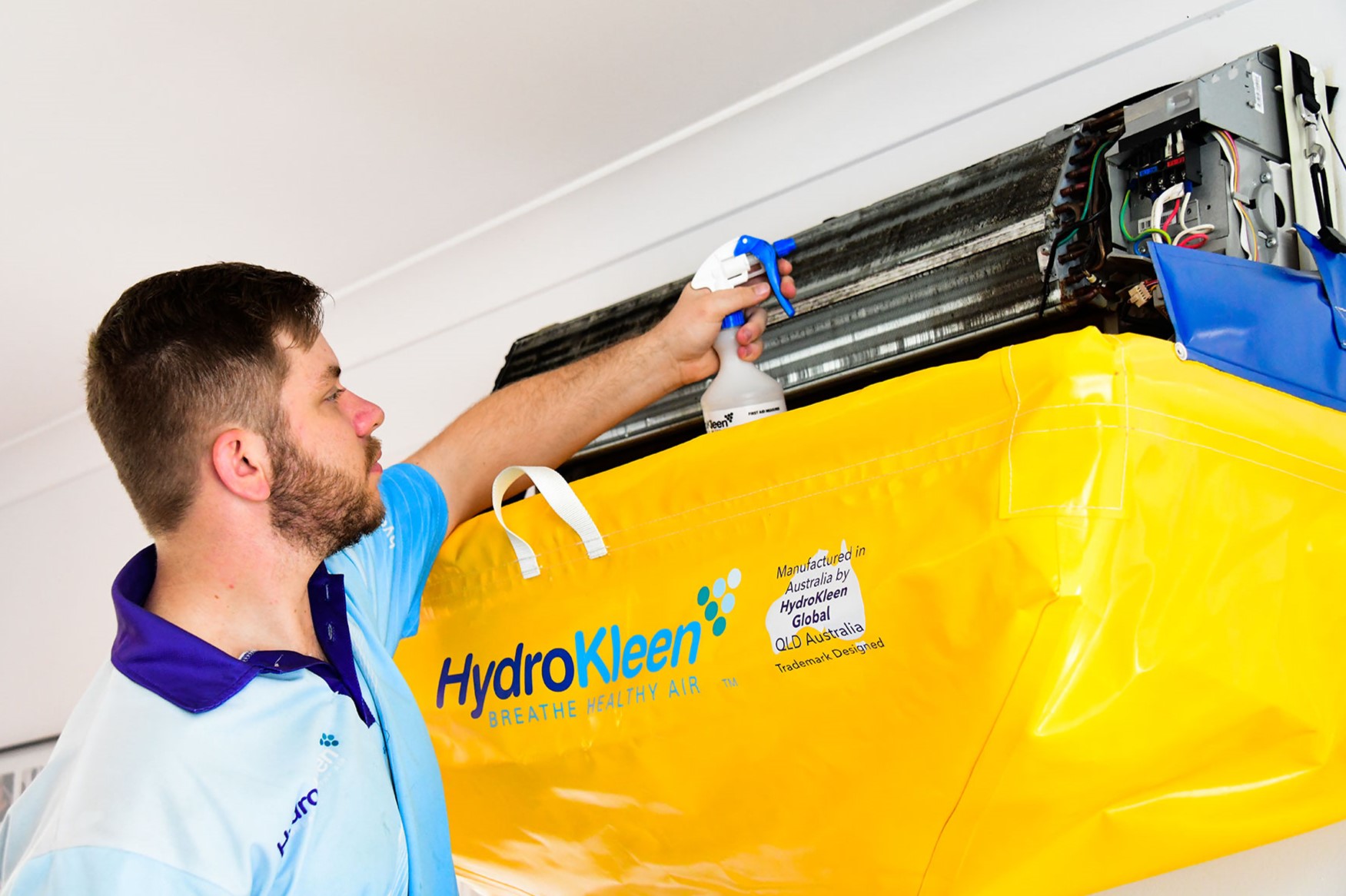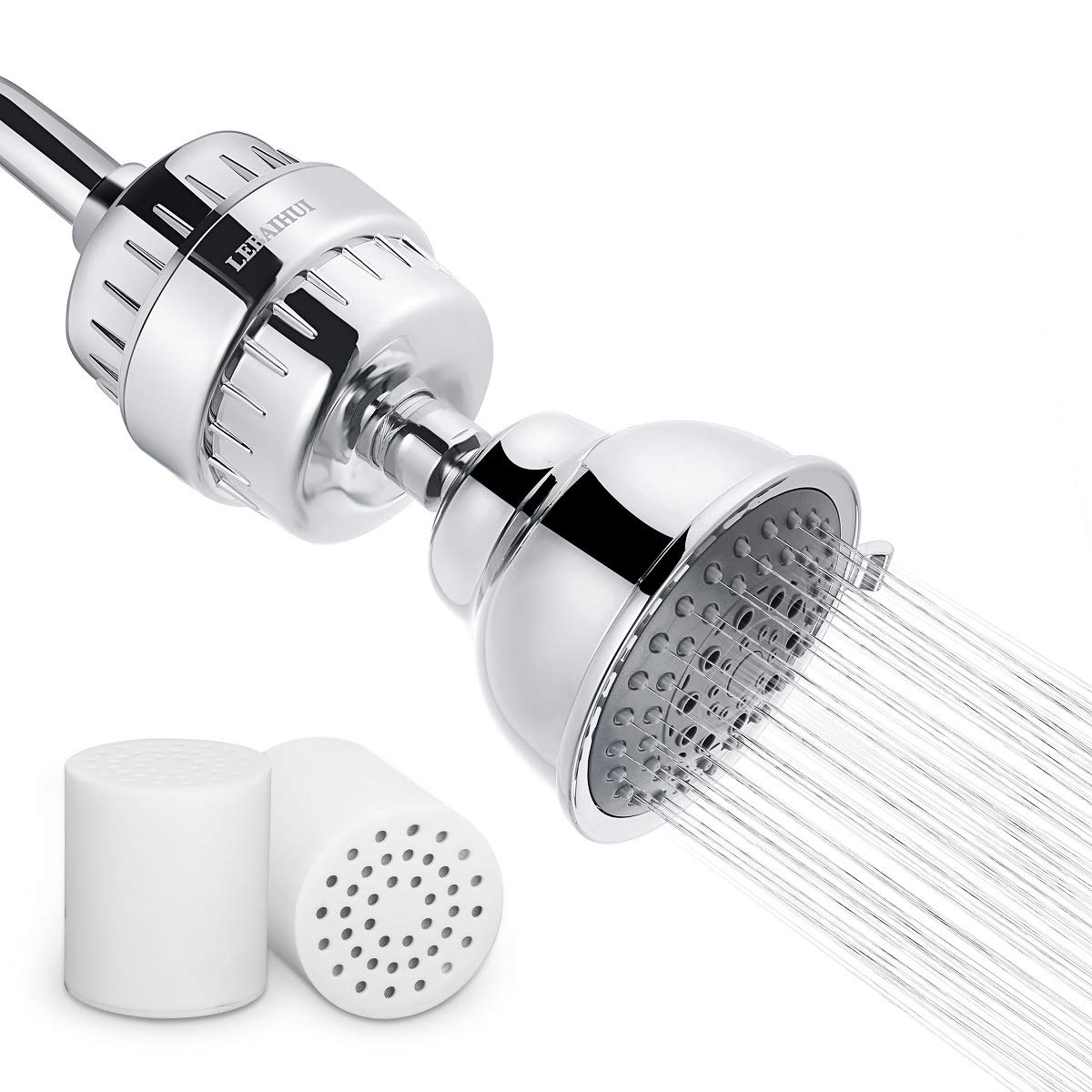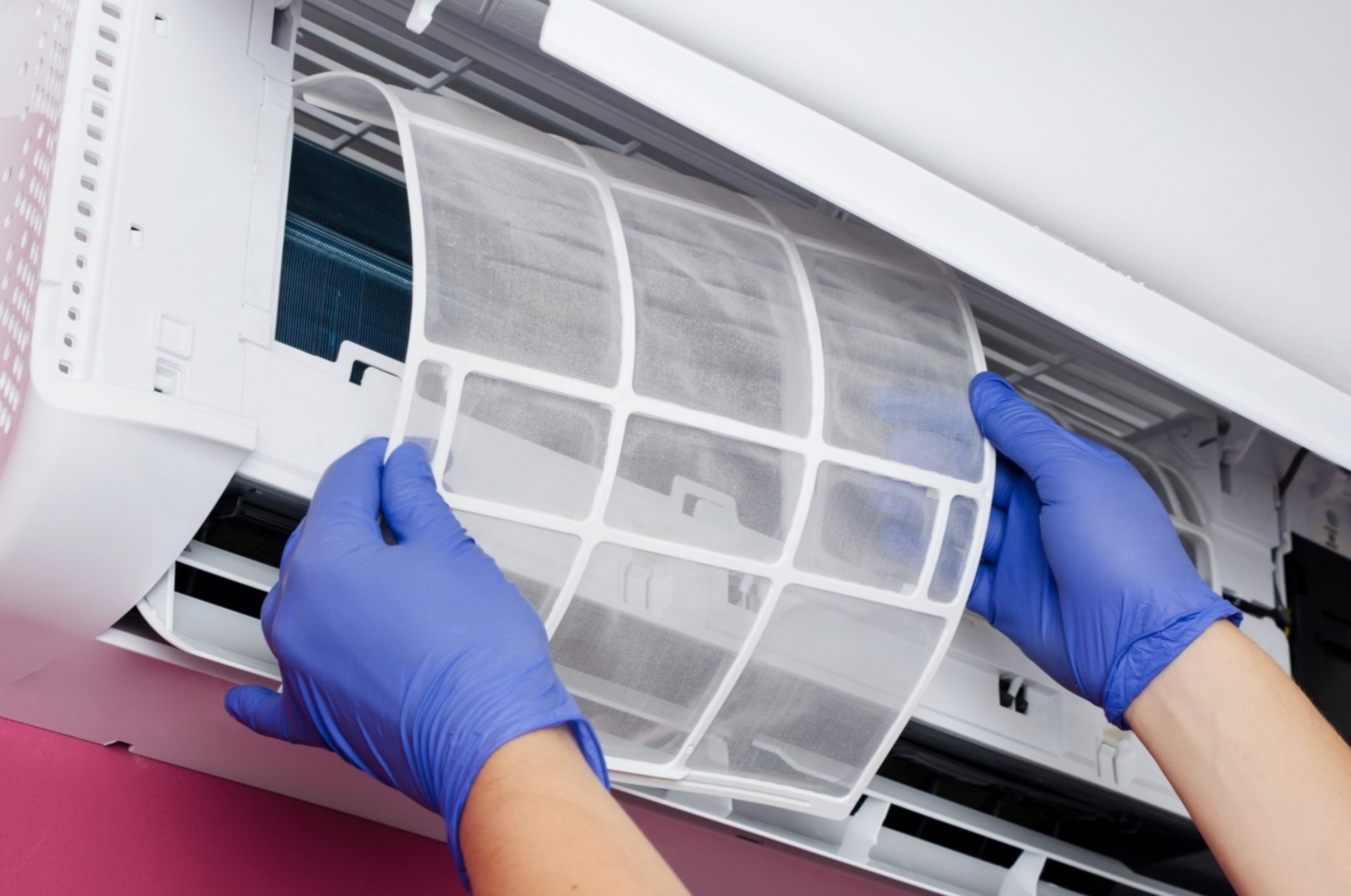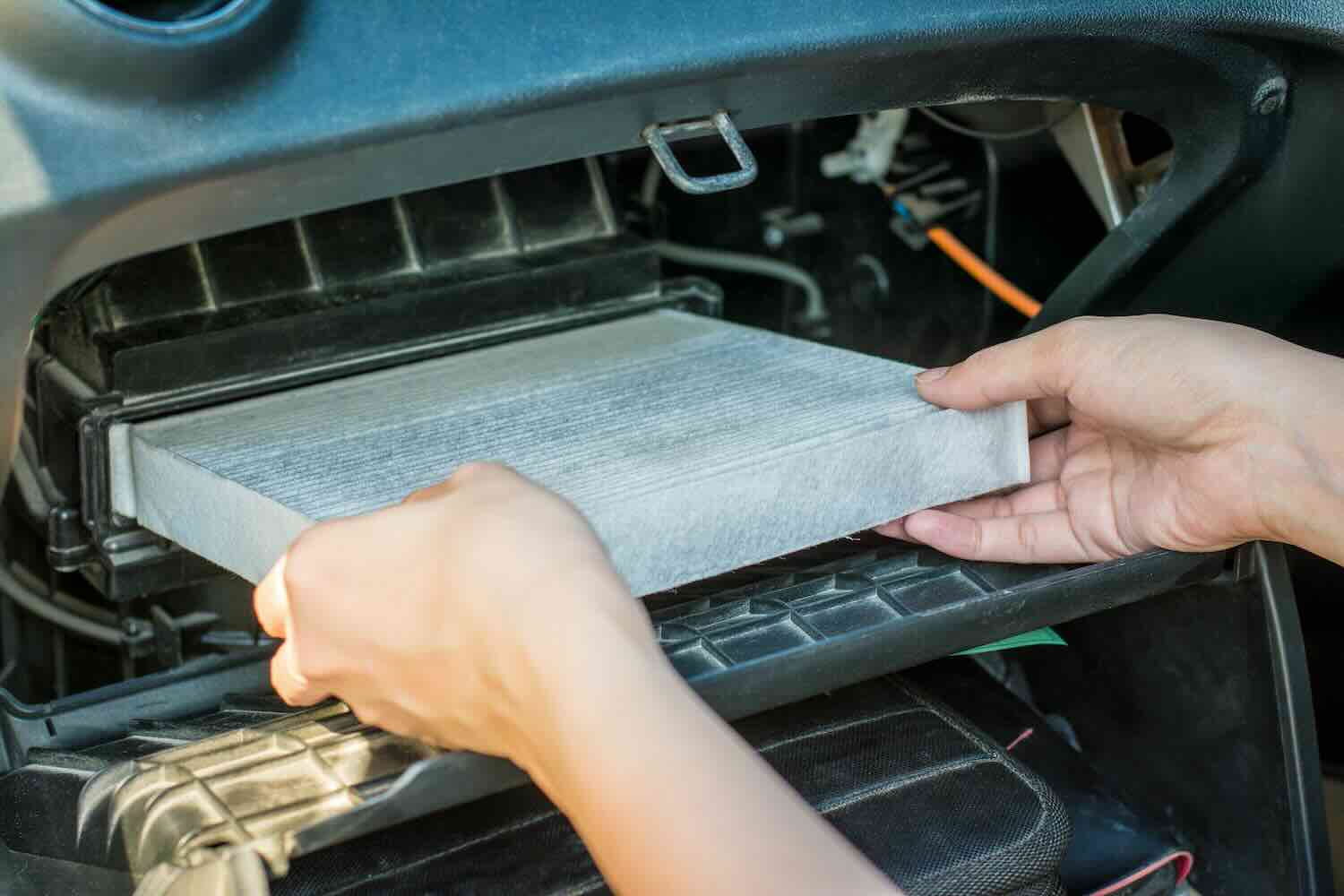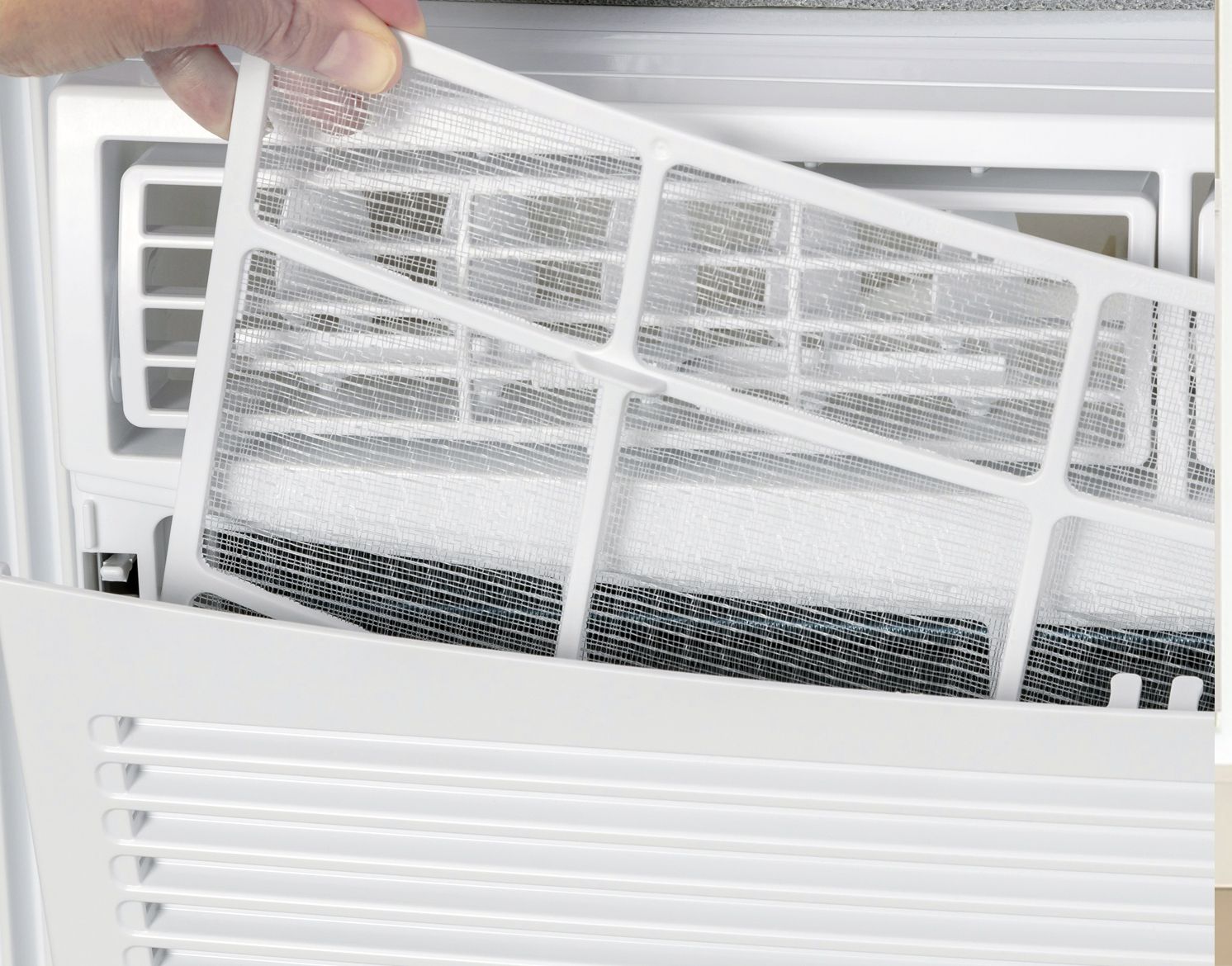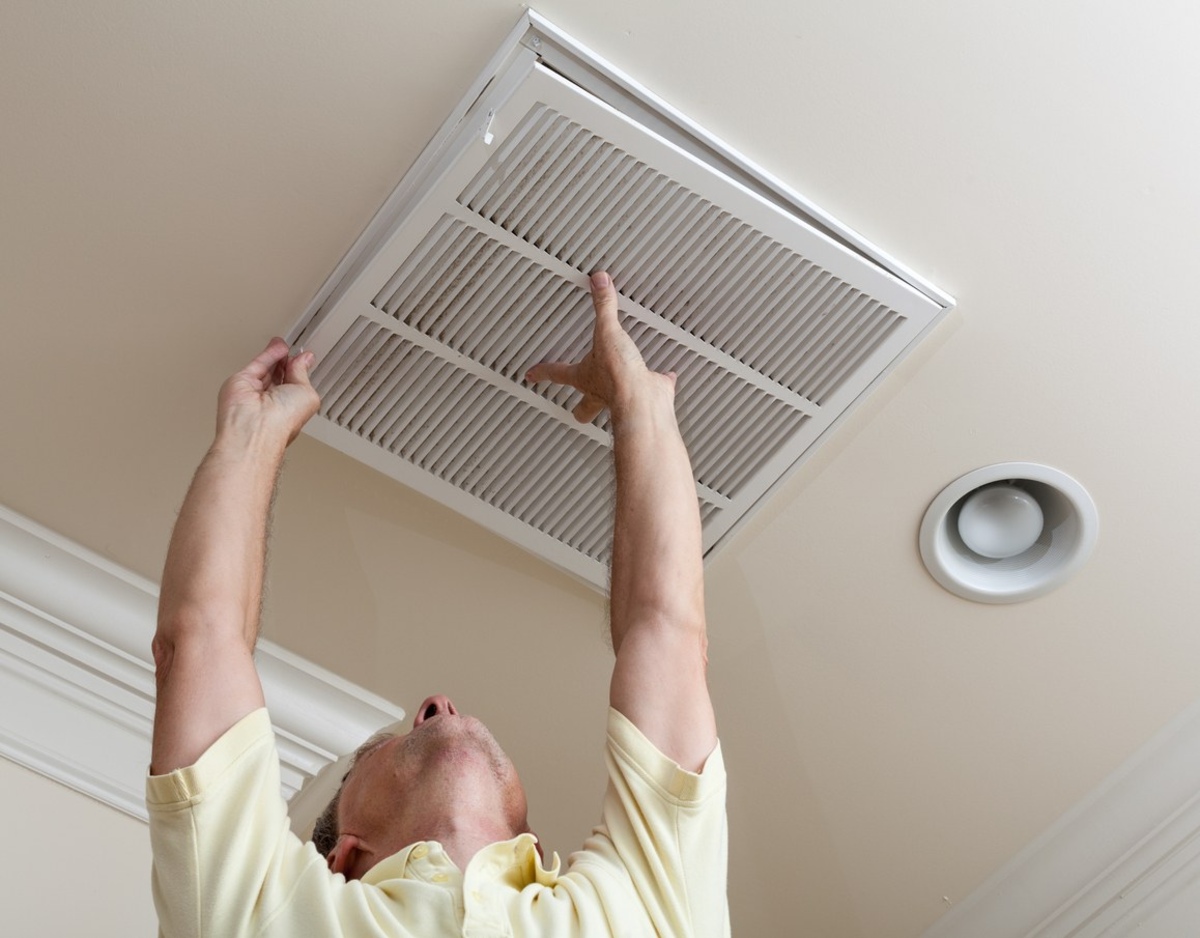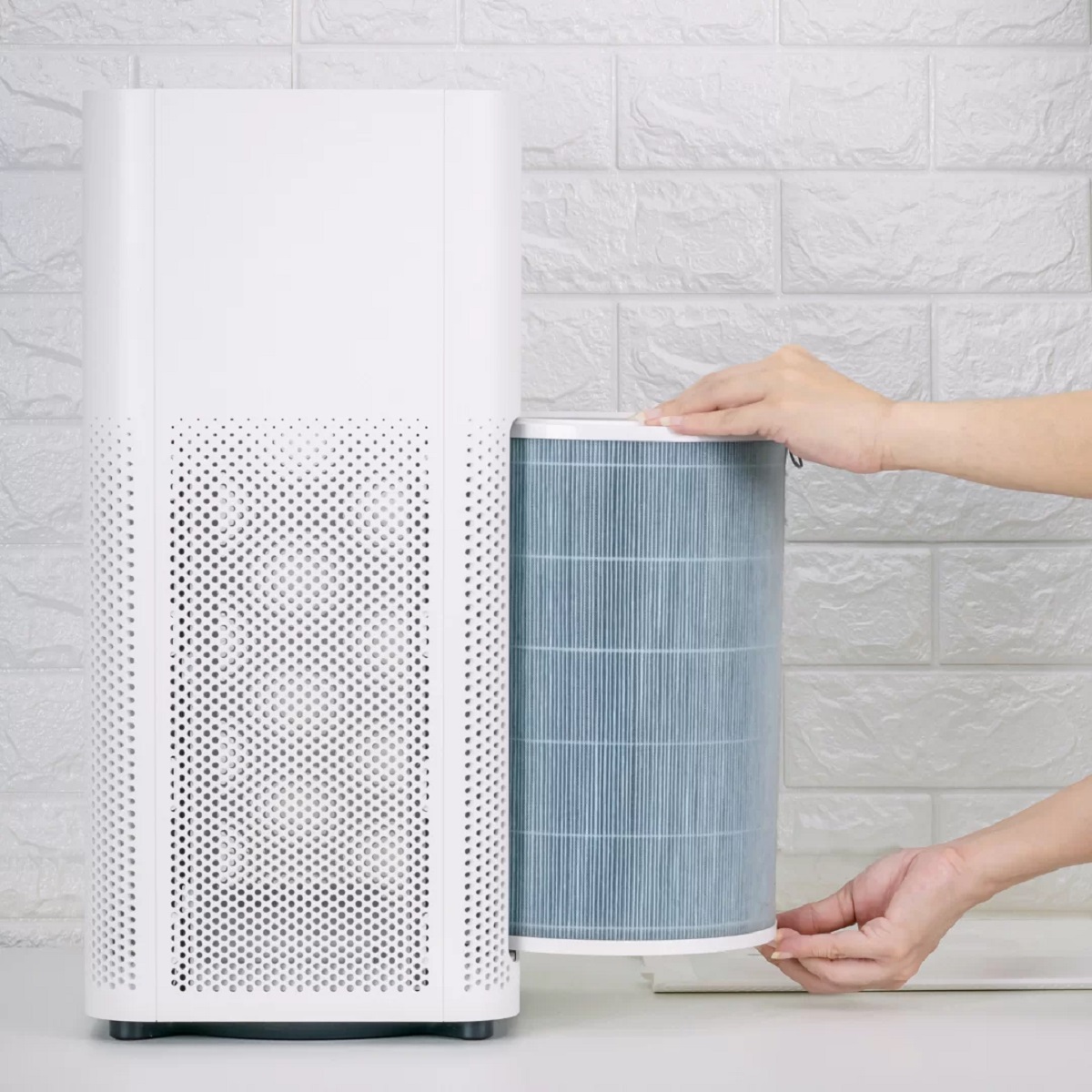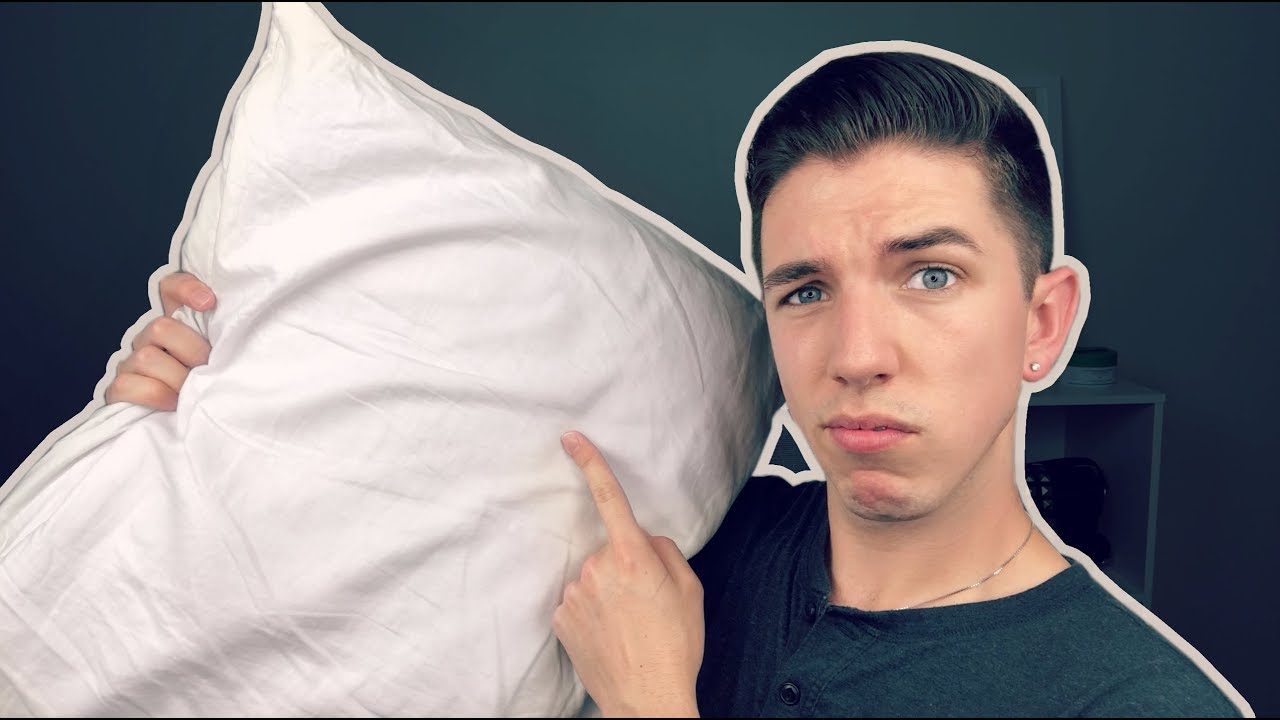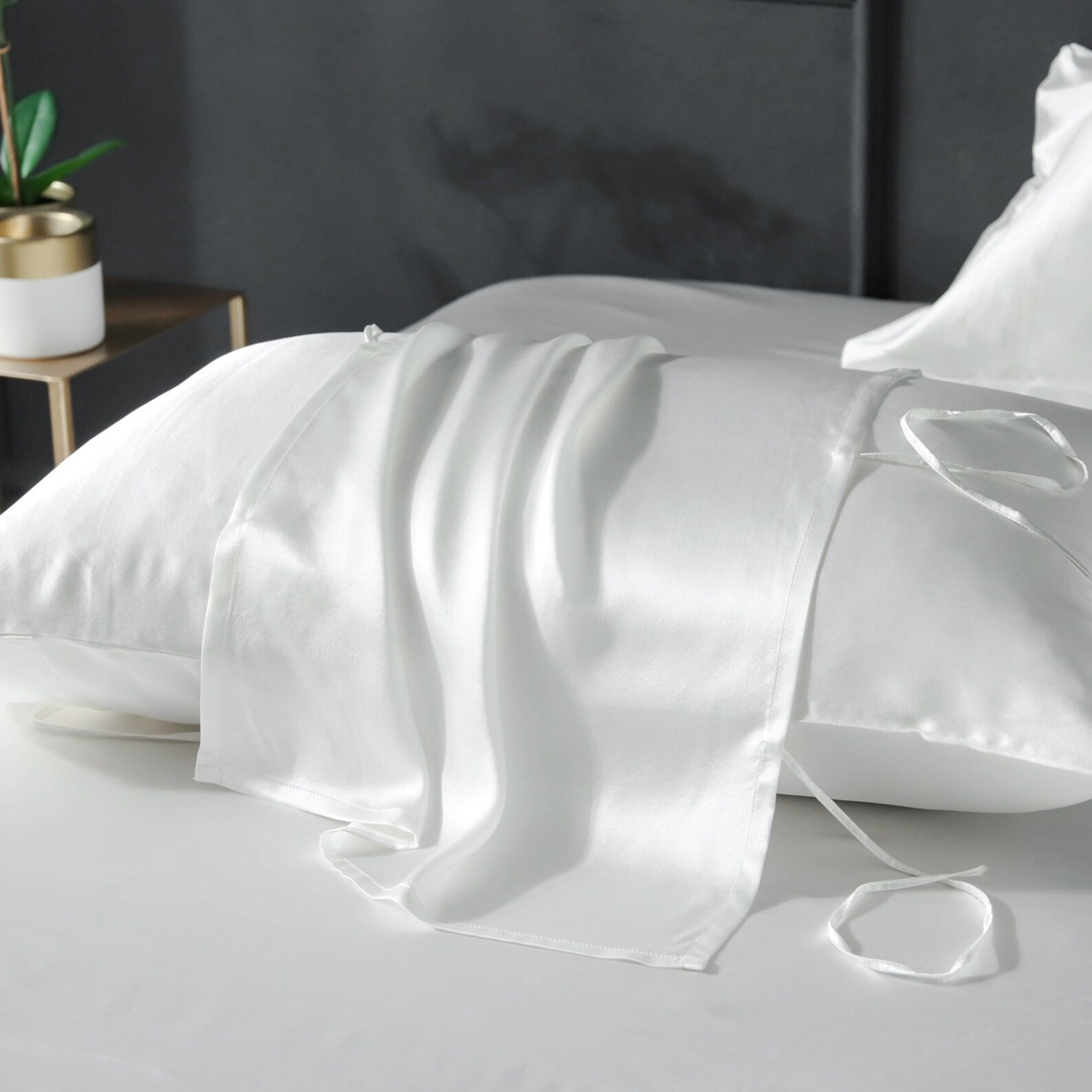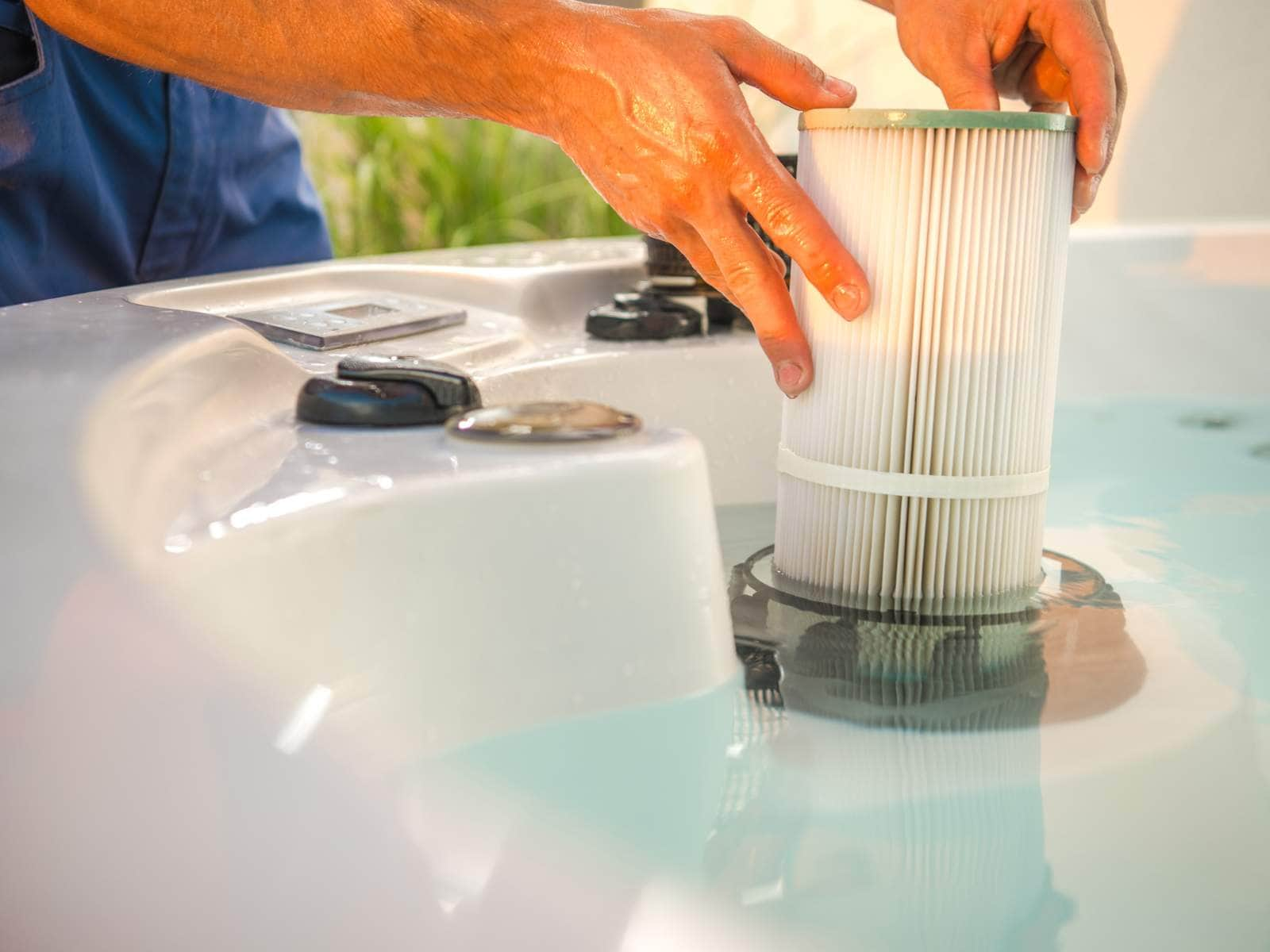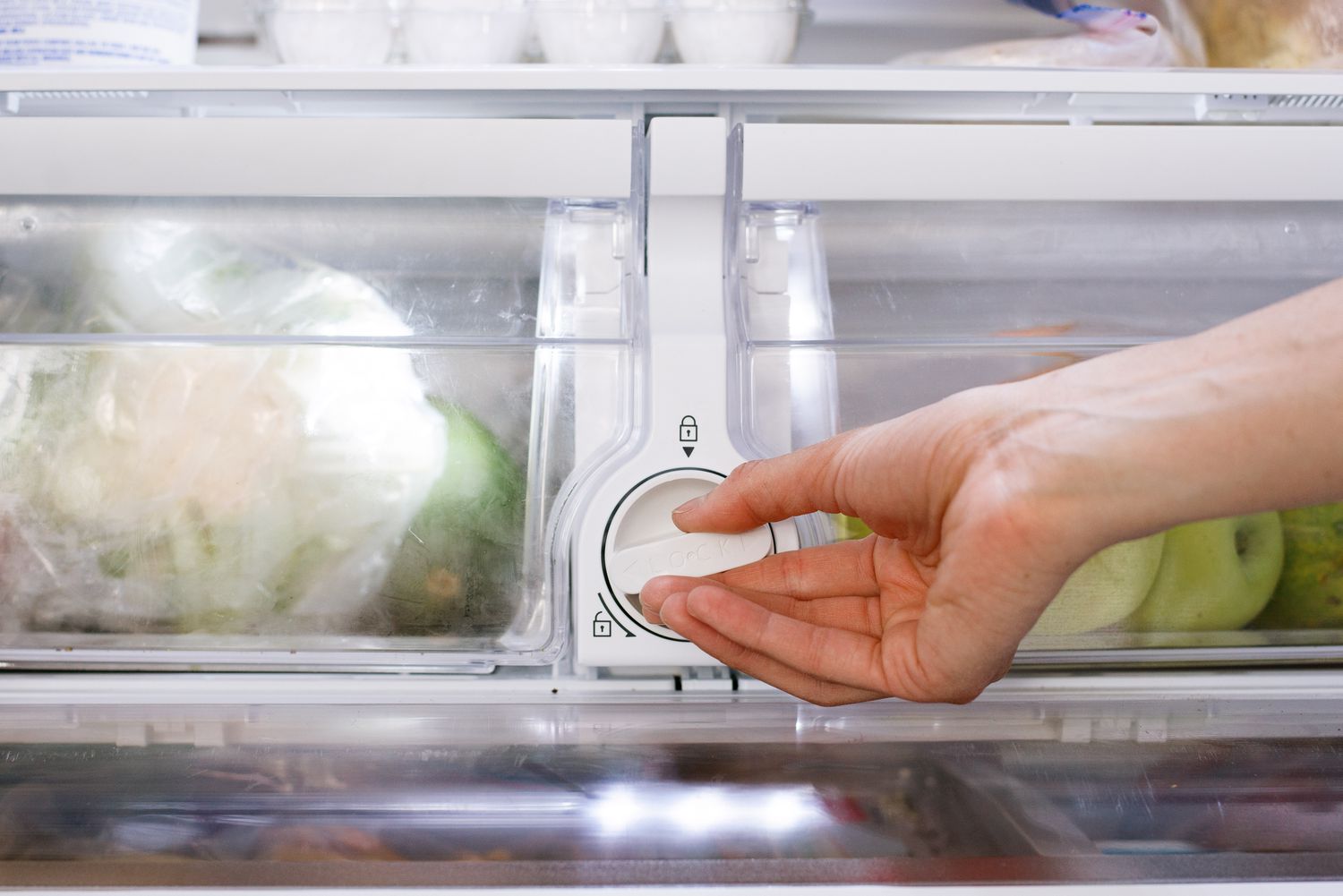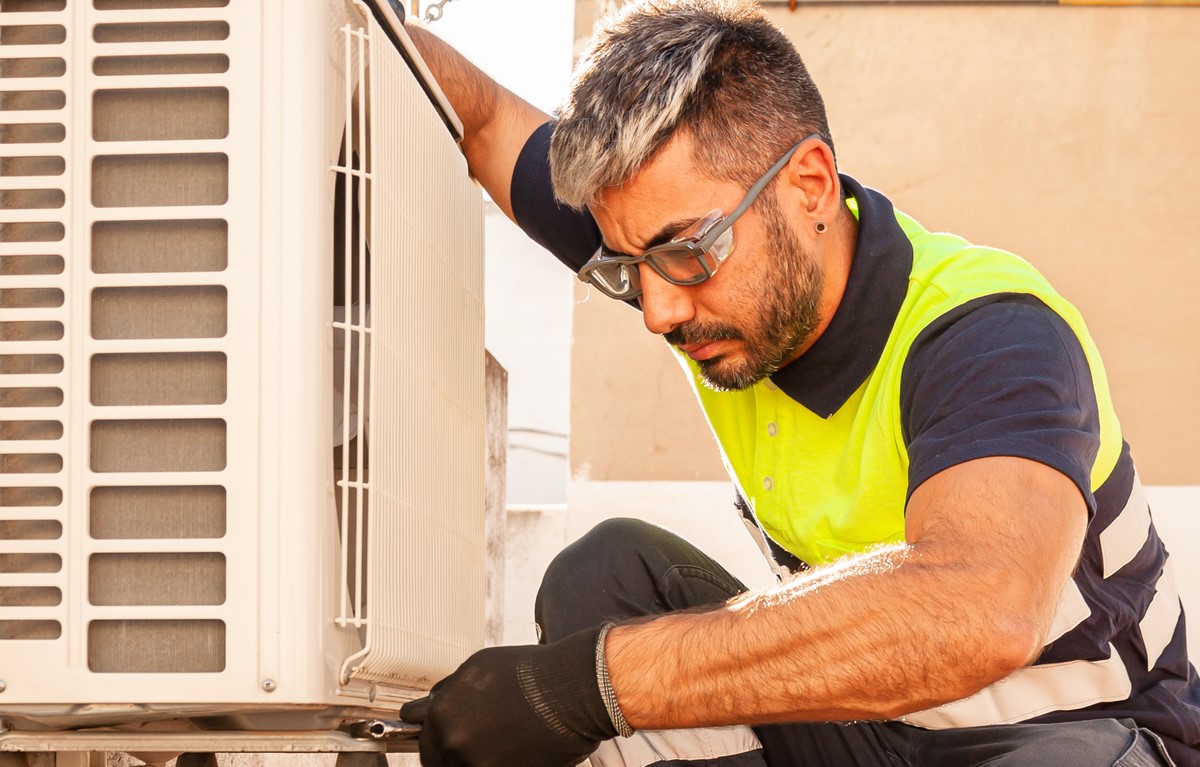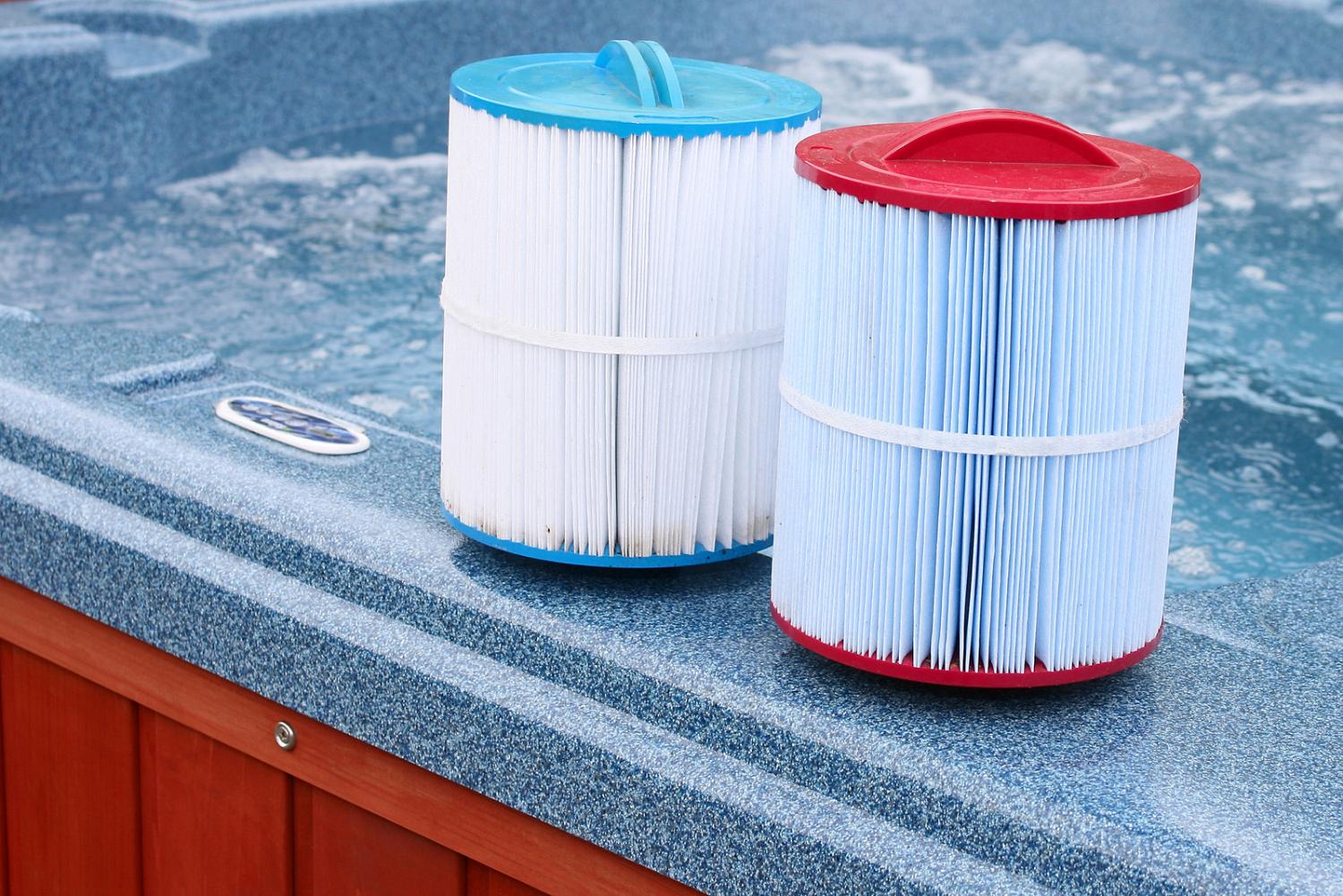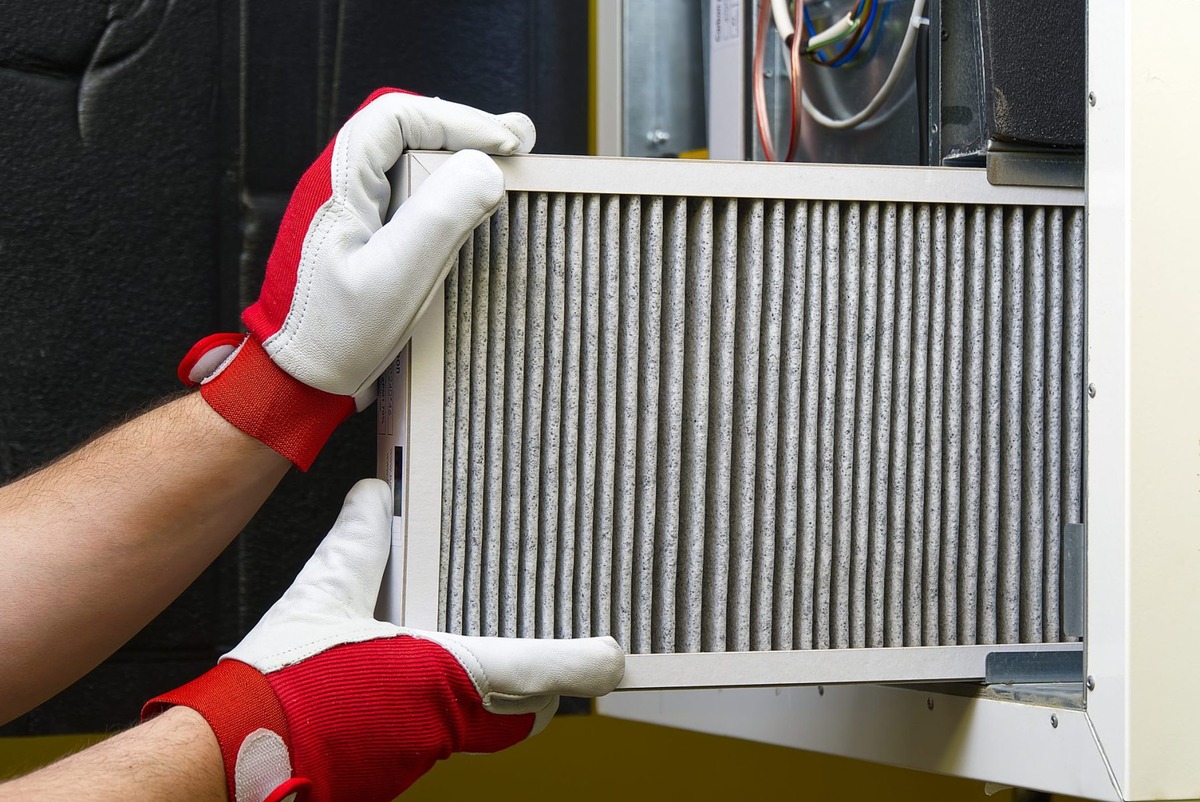Home>Home Maintenance>How Often Should I Change The Air Conditioner Filter
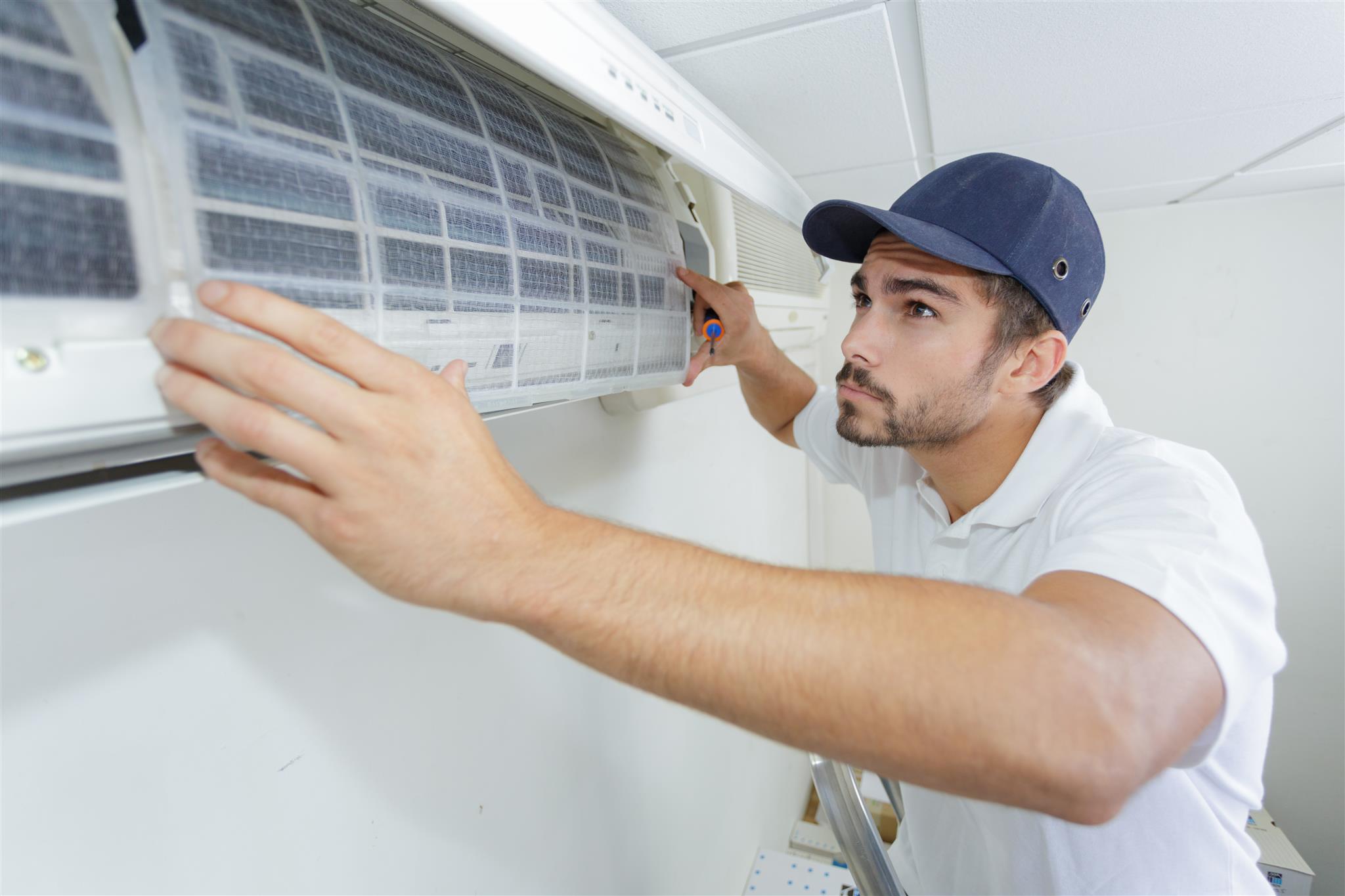

Home Maintenance
How Often Should I Change The Air Conditioner Filter
Modified: March 7, 2024
Regularly changing the air conditioner filter is crucial for optimal home maintenance. Learn how often you should replace it to ensure clean and healthy air in your living space.
(Many of the links in this article redirect to a specific reviewed product. Your purchase of these products through affiliate links helps to generate commission for Storables.com, at no extra cost. Learn more)
Introduction
Welcome to the comprehensive guide on how often you should change the air conditioner filter. As an essential component of your home’s HVAC system, the air conditioner filter plays a vital role in maintaining indoor air quality and the efficiency of your cooling system.
Regularly changing the air conditioner filter is crucial for several reasons. It helps to ensure the proper functioning of your AC unit, prolong its lifespan, and improve energy efficiency. Moreover, a clean filter promotes better air quality by trapping dust, allergens, and other airborne particles.
In this article, we will discuss the factors that influence the frequency of filter changes, the recommended guidelines, signs of a dirty filter, and the steps to change it effectively.
So, if you’ve ever wondered about the optimal time interval for replacing your air conditioner filter, keep reading to find all the answers you need.
Key Takeaways:
- Regularly changing your air conditioner filter is essential for better air quality, lower energy bills, and a longer-lasting HVAC system. It’s a simple task with big benefits for your home comfort and wallet!
- Factors like filter type, usage, and indoor air quality influence how often you should change your air conditioner filter. Stay on top of it to keep your home cool, efficient, and healthy.
Read more: How Often Should I Change AC Filter
Importance of Regularly Changing the Air Conditioner Filter
Regularly changing your air conditioner filter is crucial for maintaining the performance and longevity of your HVAC system. Here’s why:
- Improved Air Quality: The primary function of an air conditioner filter is to trap and remove airborne particles such as dust, pollen, pet dander, and mold spores. Over time, the filter becomes clogged with these contaminants, hindering its ability to effectively clean the air. Regularly replacing the filter ensures that your AC unit can continue to filter out these pollutants, improving the indoor air quality in your home.
- Enhanced Energy Efficiency: When a filter is dirty, it obstructs the airflow, forcing your air conditioner to work harder to cool your home. This increased workload leads to higher energy consumption and subsequently, increased utility bills. By regularly replacing the air conditioner filter, you can ensure that the system operates efficiently, reducing energy waste and saving you money in the long run.
- Prevention of System Damage: A dirty air conditioner filter can allow dust and debris to accumulate on the evaporator coils and other vital components of your HVAC system. Over time, this buildup can restrict airflow, resulting in reduced cooling capacity and even damage to the unit. Changing the filter regularly minimizes the risk of these issues, prolonging the lifespan of your air conditioner.
- Optimal System Performance: A clean filter allows for unrestricted airflow, which is essential for the proper functioning of your air conditioner. When the filter is dirty, the system has to work harder to push air through, straining the motor and other components. By regularly changing the filter, you can ensure optimal performance, consistent cooling, and a more comfortable living environment.
Overall, regularly changing the air conditioner filter is a simple yet effective maintenance task that can significantly impact your indoor air quality, energy efficiency, and the lifespan of your HVAC system. It is a small investment of time and money that can yield significant returns in terms of improved comfort, lower energy costs, and a healthier home environment.
Factors Influencing the Frequency of Filter Changes
The frequency at which you should change your air conditioner filter can vary depending on several factors. Understanding these factors can help you determine the optimal interval for replacing the filter. Here are the key factors that influence filter change frequency:
- Filter Type: The type of air conditioner filter you have plays a significant role in determining how often it needs to be replaced. There are various filter types available, including fiberglass, pleated, electrostatic, and high-efficiency filters. High-efficiency filters, such as HEPA filters, often have longer lifespans and may not need to be replaced as frequently as standard filters.
- System Usage: How often and how long you use your air conditioner can impact the frequency of filter changes. If you run your AC unit continuously or for extended periods, it is likely to accumulate more debris and contaminants, requiring more frequent filter replacements. Similarly, if you live in a climate with high levels of allergens or dust, you may need to change the filter more often.
- Pet Ownership: If you have pets in your home, especially ones that shed a lot of fur or dander, it can significantly shorten the lifespan of your air conditioner filter. Pet hair can quickly clog the filter, reducing its effectiveness. Consider changing the filter more frequently if you have furry friends to ensure optimal air quality and system performance.
- Indoor Air Quality: The overall indoor air quality in your home can affect how often you should replace the air conditioner filter. If you have smokers in the house, use cleaning chemicals, or live in an area with high levels of pollutants, the filter may become dirty more quickly. Monitor the air quality and change the filter accordingly to maintain a healthy living environment.
- Manufacturer’s Recommendations: It’s essential to check the manufacturer’s recommendations for your specific HVAC system regarding filter change frequency. Some manufacturers provide guidelines based on the average lifespan of their filters or specific maintenance requirements. Following these recommendations can help ensure optimal performance and prevent any potential warranty issues.
Considering these factors can give you a better understanding of how often you should change your air conditioner filter. However, it’s important to note that these are general guidelines, and it’s always best to assess the condition of the filter regularly to determine if it needs replacement.
Recommended Frequency for Changing the Air Conditioner Filter
While there is no one-size-fits-all answer to how often you should change your air conditioner filter, there are general guidelines that can help you determine the recommended frequency. Here are some recommendations for filter change intervals:
- Standard Filters: If you have a standard fiberglass or pleated air conditioner filter, it is generally recommended to change it every 1 to 3 months. This interval allows for sufficient airflow and ensures that the filter can effectively capture and remove dust and other airborne particles. However, factors such as system usage, indoor air quality, and the presence of pets may require more frequent filter changes.
- High-Efficiency Filters: High-efficiency filters, such as HEPA filters, have more advanced filtration capabilities and can typically last longer than standard filters. It is recommended to replace high-efficiency filters every 6 to 12 months. However, it’s important to monitor their condition regularly as certain factors, such as pet hair or heavy system usage, may require more frequent replacements.
- Electronic Filters: Electronic air filters are reusable and require periodic cleaning rather than replacement. The frequency of cleaning electronic filters can vary depending on the manufacturer’s instructions, but typically, it is recommended to clean them every 1 to 3 months. Consult the manufacturer’s guidelines for specific instructions on cleaning and maintenance.
- Activated Carbon Filters: Activated carbon filters are designed to remove odors and volatile organic compounds (VOCs) from the air. The lifespan of activated carbon filters can vary depending on the level of odors or pollutants in your environment. It is recommended to replace activated carbon filters every 2 to 3 months, or as directed by the manufacturer.
It is important to note that these are general recommendations, and the actual frequency of filter changes may vary based on individual circumstances. It is always a good idea to visually inspect the filter regularly and change it if it appears dirty or clogged. You may also consider consulting an HVAC professional for personalized recommendations based on your specific needs and circumstances.
It is recommended to change the air conditioner filter every 1-3 months, depending on factors such as the type of filter, indoor air quality, and frequency of use. Regularly changing the filter helps maintain good air quality and efficient operation of the AC unit.
Signs of a Dirty Air Conditioner Filter
Recognizing the signs of a dirty air conditioner filter is essential for maintaining the efficiency of your HVAC system and ensuring good indoor air quality. Here are some common indicators that your air conditioner filter may be dirty and in need of replacement:
- Reduced Airflow: One of the most noticeable signs of a dirty air conditioner filter is a decrease in airflow from the registers or vents in your home. If you notice that the airflow is weak or not as strong as usual, it may be an indication that the filter is clogged and restricting the passage of air.
- Poor Cooling Performance: A dirty filter can hinder the cooling performance of your air conditioner. If you find that certain rooms in your home are not getting as cool as they used to or if the overall cooling seems inadequate, it could be a sign of a dirty filter impeding airflow and reducing the efficiency of the system.
- Increase in Energy Consumption: When an air conditioner filter is dirty, it can cause the HVAC system to work harder to maintain the desired temperature. This increased workload leads to higher energy consumption and may result in a noticeable spike in your utility bills. If you observe a sudden increase in energy usage without any apparent reason, the dirty filter could be a contributing factor.
- Visible Dust and Debris: If you remove the air conditioner filter and notice a significant buildup of dust, dirt, or debris, it is a clear sign that it is time for a replacement. A dirty filter not only affects the performance of your HVAC system but also allows these particles to circulate in your home, potentially compromising your indoor air quality.
- Increased Allergy or Asthma Symptoms: A dirty air conditioner filter can negatively impact your indoor air quality, leading to an increase in allergy or asthma symptoms. If you or your family members experience an uptick in allergies, respiratory issues, or other related symptoms, it could be an indication that the filter is not effectively removing allergens and contaminants from the air.
Regularly checking and replacing your air conditioner filter can help prevent these issues and ensure that your HVAC system operates efficiently. If you notice any of these signs, it is recommended to inspect and replace the filter as soon as possible to maintain optimal system performance and indoor air quality.
Read more: How Often Should You Change HVAC Air Filter
Steps to Change the Air Conditioner Filter
Changing the air conditioner filter is a relatively simple process that can be done in a few straightforward steps. Here’s a guide to help you replace the filter effectively:
- Prepare: Start by gathering the necessary tools and equipment. You will typically need a new filter that matches the size and type recommended for your air conditioner, as well as a screwdriver or any other tool required to open the filter access panel.
- Locate the Filter: The filter is usually located in the air handler or return air duct. Consult the owner’s manual or search for the filter access panel, which is often found on the side or at the bottom of the air conditioner unit. In some cases, the filter may also be located in the ceiling or wall grille.
- Turn off the System: Before removing the filter, it is important to turn off the air conditioner system. This ensures your safety and prevents any debris from being circulated while you are handling the filter.
- Remove the Old Filter: Open the filter access panel and carefully remove the existing filter. Take note of its orientation, as some filters have arrows indicating the airflow direction. Handle the old filter with care to avoid scattering any dust or debris and dispose of it properly.
- Install the New Filter: Take the new filter and align it with the filter slot, following the airflow direction indicated by the arrows. Ensure that the filter fits snugly and securely in the designated area. If needed, refer to the manufacturer’s instructions for any additional steps or guidelines specific to your air conditioner model.
- Close the Filter Access Panel: Once the new filter is in place, carefully close the filter access panel and ensure that it is securely fastened. This helps maintain the proper seal and ensures that air passes through the filter effectively.
- Turn on the System: After successfully replacing the filter, you can now turn on the air conditioning system. Allow it to run for a few minutes to ensure that everything is working correctly and that proper airflow is restored.
- Set a Reminder: To ensure that you remember to change the filter regularly, set a reminder on your calendar or phone. A timely filter replacement helps maintain the efficiency of your HVAC system and promotes good indoor air quality.
By following these steps, you can easily and effectively change the air conditioner filter. Remember to consult the owner’s manual or seek professional assistance if you have any specific questions or concerns about your air conditioner’s filter replacement process.
Conclusion
Regularly changing the air conditioner filter is an important aspect of home maintenance that shouldn’t be overlooked. By replacing the filter at the recommended intervals and paying attention to signs of a dirty filter, you can ensure the optimal performance of your HVAC system and maintain good indoor air quality.
A clean air conditioner filter enhances airflow, improves energy efficiency, and prevents damage to the system. It traps dust, allergens, and other airborne particles, contributing to a healthier living environment. By investing a small amount of time and effort into regularly changing the filter, you can reap significant benefits in terms of comfort, energy savings, and the longevity of your air conditioner.
Factors such as filter type, usage patterns, pet ownership, and indoor air quality can influence how often the filter needs to be replaced. It is essential to consult manufacturer recommendations and visually inspect the filter to determine the ideal replacement interval for your specific circumstances.
When changing the air conditioner filter, it is necessary to follow the proper steps, including locating the filter, turning off the system, removing the old filter, installing the new filter, and closing the filter access panel. By doing so, you can ensure a seamless and effective filter replacement process.
Remember to set a reminder for regular filter changes to maintain consistency and preserve the efficiency of your HVAC system. If you ever have any doubts or questions about the filter replacement process, consult the owner’s manual or seek professional assistance.
In conclusion, by prioritizing regular air conditioner filter changes, you can enjoy a comfortably cool home, improved energy efficiency, and cleaner air. Take the necessary steps to keep your air conditioner running smoothly, and enjoy the benefits of a well-maintained HVAC system for years to come.
Frequently Asked Questions about How Often Should I Change The Air Conditioner Filter
Was this page helpful?
At Storables.com, we guarantee accurate and reliable information. Our content, validated by Expert Board Contributors, is crafted following stringent Editorial Policies. We're committed to providing you with well-researched, expert-backed insights for all your informational needs.
